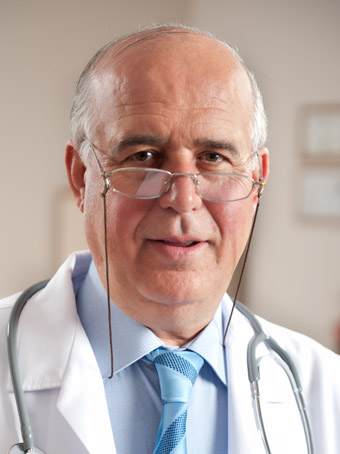Colon Cancer
Arcu risus quis varius quam quisque id diam vel quam. Duis tristique sollicitudin.
Find a provider Colon cancer risk assessment
Colon cancer — or colorectal cancer — is the third most common cancer after skin cancer in both men and women. The average American has about a 5% risk of developing colon cancer during their lifetime.
The vast majority — 95% — of colon cancers are adenocarcinomas. These cancers develop slowly over 10 to 15 years.
They arise in the gland cells that make lubricating mucus for the colon and rectum. But they start as noncancerous polyps in the lining of the colon or rectum. Your doctor can check for polyps with screening tests like a colonoscopy.
Risk Factors and Causes
Experts don’t fully understand what causes colon cancer. Anyone can get colon cancer, but certain risk factors increase the likelihood of developing it including:
- African American race
- Age — 90% of colon cancers occur in people 50 and older
- Family or personal history of colorectal polyps or cancer
- Genetics — 5 to 10% of colon cancers are related to mutations in genes and genetic syndromes
- Personal history of inflammatory bowel disease — ulcerative colitis and Crohn’s disease
- Type 2 diabetes
Lifestyle factors, such as obesity, not exercising, smoking, poor diet, and heavy alcohol use, can also increase the risk of developing colon cancer.
Symptoms
Screening finds many colon cancers early, before symptoms start. In fact, regular screening often prevents colon cancer from developing in the first place by finding polyps before they become cancerous. There are a variety of screening methods, so talk with your doctor about your options.
When symptoms of colon cancer develop, they can include:
- Abdominal cramping or pain
- Bloody stool
- Changes in bowel habits, such as diarrhea, constipation, changes in consistency, or narrowing of the stool
- Feeling of incomplete emptying after a bowel movement
- Rectal bleeding
- Tiredness or weakness
- Weight loss and loss of appetite
These symptoms are the same as many other conditions, such as hemorrhoids. See your doctor for the right diagnosis.
Treatment Options
Surgery is the most common treatment for all stages of colon cancer. The extent of surgery will depend on the stage. Your doctor may also recommend the following standard treatment options:
- Chemotherapy
- Radiation
- Targeted therapy
Catching colon cancer early offers the best chance of a cure. And current treatments are more effective than ever — more than one million Americans are colon cancer survivors.






